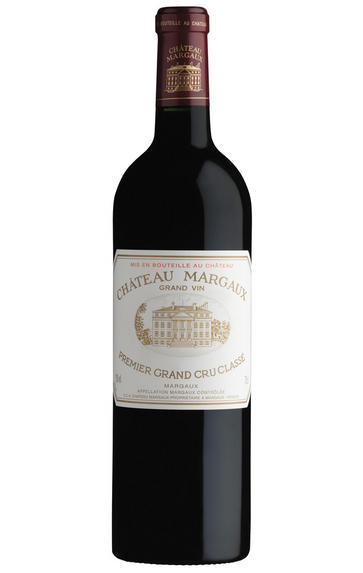
2020 Château Margaux, Margaux, Bordeaux
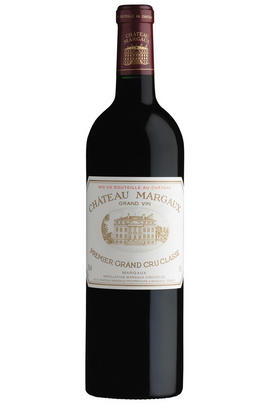
Critics reviews
Drink from 2026 to 2060
Neal Martin, Vinous (May 2021)
Drink from 2035 to 2060
Antonio Galloni, Vinous (June 2021)
Drink from 2028 to 2044
Jane Anson, Decanter (April 2021)
The 2020 Château Margaux is composed of 89% Cabernet Sauvignon, 8% Merlot, 1% Cabernet Franc and 2% Petit Verdot, accounting for 36% of the harvest. The alcohol weighs in at 13.5%, the IPT is 80 and the pH is 3.67.
Displaying an opaque purple-black color, it needs a lot of air, time and patience to coax out the youthfully reticent nose of blueberry preserves, blackcurrant pastilles and Black Forest cake, followed by suggestions of lavender, clove oil, iron ore and menthol with wafts of star anise and candied violets. The medium to full-bodied palate is wonderfully opulent, featuring tightly wound yet beautifully pure layers of black fruits and earthy nuances within a solid structure of firm yet velvety tannins and exhilarating freshness, finishing with very long-lingering earth and mineral notes. Another stunning expression of the vintage by Philippe Bascaules and his team—bravo!
Drink 2028 - 2068
Lisa Perrotti-Brown MW, Wine Advocate (May 2021)
Drink 2030 - 2055
James Lawther MW, jancisrobinson.com (May 2021)
James Suckling, jamessuckling.com (April 2021)
Jeb Dunnuck, jebdunnuck.com (May 2021)
Drink 2035 - 2060
Michael Schuster, The World of Fine Wine (May 2021)
About this WINE
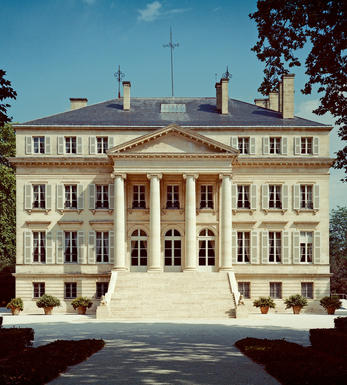
Chateau Margaux
Château Margaux, a First Growth property, has been owned by the Mentzelopoulos family since 1978. It has since consistently produced some of the finest wines in the Médoc.
One of the grandest, most imposing buildings amongst the Médoc châteaux, Ch. Margaux in its current form was built in the early 19th century, although viticulture had been practised on the estate for several centuries before. A chequered period of ownership in the 19th and early 20th century meant that the quality of some vintages was patchy. But the change which restored the property to its rightful status came in 1977 when it was bought by André Mentzenopoulos, Greek by birth but who had lived in France since 1958 and had made a fortune through supermarket retailing. André immediately instigated much-needed investment in vineyard and cellar. His untimely death in 1980 saw his daughter, Corinne, take up the reins. Corinne’s shrewdest move was the recruitment of talented young winemaker Paul Pontallier to oversee the production.
Paul would lead the estate for 33 vintages. He sadly passed away in 2016. Today, the estate is overseen by director Philippe Bascaules and technical director Sebastien Vergne, working with consultant Eric Boissenot.
The estate has 82 hectares under vine, with Cabernet Sauvignon inevitably dominant (75%) with 20% Merlot making up most of the rest, along with a smattering of Cabernet Franc and Petit Verdot. Unusually in Margaux, there is a white wine made here, Pavillon Blanc, from 100% Sauvignon Blanc, while the two red wines are, of course, Ch. Margaux itself and Pavillon Rouge. Typically, about 30,000 cases of red wine are made, with the Grand Vin usually accounting for just over 40% of the total. Production of the white wine amounts to less than 3,000 cases.
Margaux wines are renowned for their perfumed elegance, but this should not be construed as meaning that these are light-bodied. Far from it, as the best have an enviable structure, layers of complexity, and formidable length.
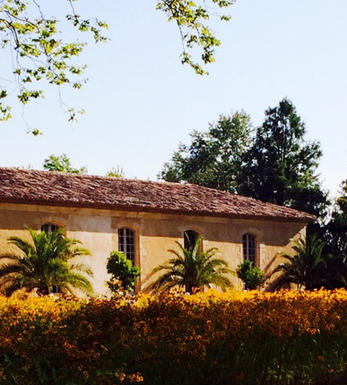
Margaux
If Pauillac can be seen as the bastion of ‘traditional’ Red Bordeaux, then Margaux represents its other facet in producing wines that are among Bordeaux’s most sensual and alluring. It is the largest commune in the Médoc, encompassing the communes of Cantenac, Soussans, Arsac and Labaude, in addition to Margaux itself. Located in the centre of the Haut-Médoc, Margaux is the closest of the important communes to the city of Bordeaux.
The soils in Margaux are the lightest and most gravelly of the Médoc, with some also containing a high percentage of sand. Vineyards located in Cantenac and Margaux make up the core of the appelation with the best vineyard sites being located on well-drained slopes, whose lighter soils give Margaux its deft touch and silky perfumes. Further away from the water, there is a greater clay content and the wines are less dramatically perfumed.
Margaux is the most diffuse of all the Médoc appelations with a reputation for scaling the heights with irreproachable wines such as Ch. Margaux and Ch. Palmer, but also plumbing the depths, with too many other châteaux not fulfilling their potential. There has been an upward shift in recent years, but the appellation cannot yet boast the reliability of St Julien. However, the finest Margaux are exquisitely perfumed and models of refinement and subtlety which have few parallels in Bordeaux.
Recommended Châteaux: Ch. Margaux, Ch. Palmer, Ch. Brane-Cantenac, Ch. Rauzan-Ségla , Ch. Dufort-Vivens, Ch. Ferrière, Ch. du Tertre, Ch. Giscours, Ch. d'Angludet.
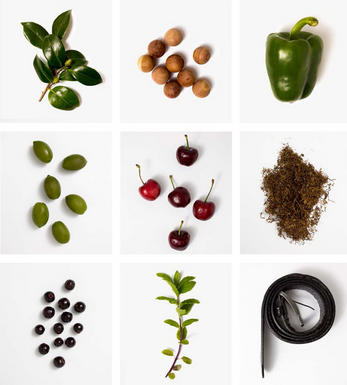
Cabernet Sauvignon Blend
Cabernet Sauvignon lends itself particularly well in blends with Merlot. This is actually the archetypal Bordeaux blend, though in different proportions in the sub-regions and sometimes topped up with Cabernet Franc, Malbec, and Petit Verdot.
In the Médoc and Graves the percentage of Cabernet Sauvignon in the blend can range from 95% (Mouton-Rothschild) to as low as 40%. It is particularly suited to the dry, warm, free- draining, gravel-rich soils and is responsible for the redolent cassis characteristics as well as the depth of colour, tannic structure and pronounced acidity of Médoc wines. However 100% Cabernet Sauvignon wines can be slightly hollow-tasting in the middle palate and Merlot with its generous, fleshy fruit flavours acts as a perfect foil by filling in this cavity.
In St-Emilion and Pomerol, the blends are Merlot dominated as Cabernet Sauvignon can struggle to ripen there - when it is included, it adds structure and body to the wine. Sassicaia is the most famous Bordeaux blend in Italy and has spawned many imitations, whereby the blend is now firmly established in the New World and particularly in California and Australia.


Buying options
Add to wishlist
Description
Cabernet Sauvignon 89%, Merlot 8%, Petit Verdot 2%, Cabernet Franc 1%
This is a breath-taking wine that, in truth, dumbfounded expectations. The concern was that the drought and heat would have robbed Margaux of some of its sublimity and elegance; the reverse is true. The wine is dense and imposing, but the skill has been in the selection (the grand vin accounts for just 36% of the harvest) and the extraction, holding on to the pure core of endlessly expressive fruit, swirling and intoxicating across the palate. Everything – tannins, fruit, freshness – is then enfolded together in a finish that is luxuriantly silky yet precisely defined. It’s a marvel.
Drink 2030-2065
wine at a glance
Delivery and quality guarantee